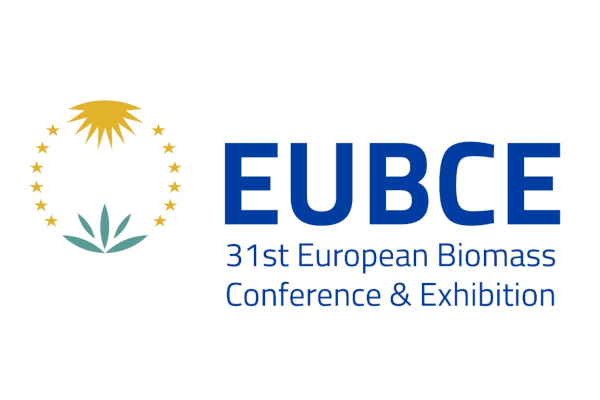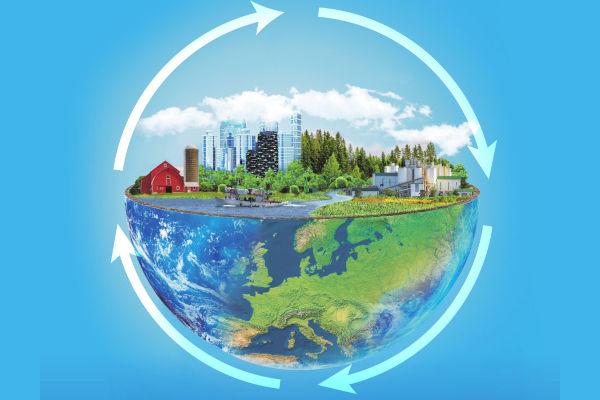Why the EU supports bioenergy research and innovation
Bioenergy is the conversion of biomass - such as agricultural and forest by-products residues and wastes, organic municipal waste, energy crops with low indirect land use risk, algae, biological CO2 - into useful energy carriers including heat, electricity and transport fuels.
Bioenergy is the main source of renewable energy in the EU, with a share of almost 60%.
The EU has leadership in bioenergy technologies, but deployment remains limited.
Bioenergy in RepowerEU and the European Green Deal
REPowerEU is the EU's plan for more affordable, secure and sustainable energy. Bioenergy can contribute significantly to the REPowerEU goals by ensuring security of energy supply and reducing dependency on fossil fuels imports.
Bioenergy, and in particular advanced biofuels and biomethane, can also contribute significantly to multiple EU Green Deal objectives, for instance in the short term to the transport energy diversification and decarbonisation of transport sectors that are difficult to electrify, like maritime, aviation and heavy-duty road transport, but also light duty road transport during the transition to electrification.
Another example is their contribution to the grid flexibility and energy system integration as long-term energy carriers and energy storage solutions. Because they rely on local biomass resources and on short supply chains, bioenergy creates many skilled jobs, reduces energy poverty and drives industrial competitiveness.
Learn more about energy strategy and RepowerEU
- Info Pack on Innovative biomethane for REPowerEU
- Innovative Biomethane for REPowerEU – A Cordis Info Pack - YouTube
Opportunities
- bioenergy, liquid biofuels and biomethane are essential for both energy use and as energy carriers
- the market for advanced biofuels is growing because of their large renewable energy density
- the domestic market for innovative biomethane is growing, driven by REPowerEU
- because they are compatible with existing engines, drop-in biofuels are the only deployable solution for replacing petroleum in transport in the mid-term, and in sectors like aviation and shipping in the long-term as well
- research and innovation can improve the cost, performance, and sustainability needed to make bioenergy competitive
Challenges
- improving the technology in terms of efficiency and cost reduction
- developing reliable, integrated bioenergy supply chains from feedstock cultivation, harvesting, transport, storage to conversion into heat, electricity and transport fuels
- integrating bioenergy in the overall energy system
Research focuses on
- technology improvement, cost reduction and diversification
- feedstock diversification
- modernising and improving efficiency of biomass based heat and power co-generation
- market uptake measures for all technologies, in particular aviation, shipping and heavy duty road
- breakthrough research and market-creating innovation (e.g. bionic leaf technology)
- coordinating EU research and innovation funding and risk financing to boost commercialisation
- integration of bioenergy in the overall energy system
- international cooperation to tackle global societal challenges
Funding opportunities
Calls for proposal on energy related themes in Horizon Europe and information on the work programme.
Energy research related calls may be found in these funds.
Funding for innovative low-carbon technology research with focus on environmentally safe Carbon Capture and Storage (CCS) and innovative renewable energy technologies
The LIFE Programme is the EU’s funding instrument for the environment and climate action.
The European Climate, Infrastructure and Environment Executive Agency (CINEA) is the successor organisation of the Innovation and Networks Executive Agency (INEA).
Prize rewarding achievements in local renewable energy production for electricity, heating, cooling and transport on islands.
Projects and results
The Commission's primary portal for EU-funded research projects and their results.
Stories of particularly successful EU-funded projects
Latest news, interviews and features about thought-provoking science and innovative research projects funded by the EU.
Platform where framework programme participants present their results for you to search, contact their owners, and form partnerships.
Thematic collections of innovative EU-funded research results in the energy field
Access to real-time programme data with the ability to filter by country, region, theme and more
Collaboration and jobs
Find partners for open EU calls for proposal
Collaborate in energy research and innovation public-private partnerships
International cooperation between the EU and global stakeholders in energy
Researcher jobs in related fields
Scientific publications, tools and databases
SET-Plan implementation progress reports giving data by priority area, country and energy source
Scientific energy research publications published by the European Commission's Joint Research Centre (JRC)
The Commission's Joint Research Centre (JRC) compiles databases and develops software and modelling tools. You can access energy research related ones here
Online library of EU energy research publications
Single point of access to open data produced by the EU institutions - all data free to use for commercial and non-commercial purposes
You can access all scientific publications from Horizon 2020 via OpenAIRE


